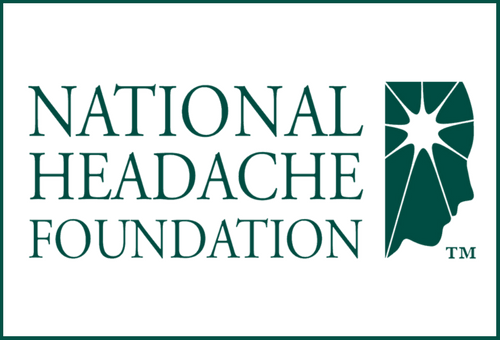Migraine Long Haulers: Lasting Effects
You are currently watching a preview of this interview. Unlock the full version by upgrading to an Access Pass bundle! Get FREE access to 8 expert interviews from Day 1 and Day 2 when you register today!
Key Questions
- How does migraine most typically morph over time when someone has lived with it for decades?
- What concerns should we have about the effects of long-term migraine on our health outside of migraine attacks themselves: Are changes to brain structure or function likely? Are these changes permanent or can they be reversed, for instance, if you manage to reduce your attack frequency?
- What is known about the long-term trajectory of migraine?
- What do we know about the common “white-matter” abnormalities found in MRI scan results in people with migraine? What do they mean? Should we be concerned?
- What other health conditions or associations should people with long-term migraine look out for?
- Are there any opportunities to address other conditions that are comorbid with migraine using the same medication?
- What happens when treatments that have worked for patients stop working?
- When a new type of headache presents or a medication responsiveness changes, in what circumstances should there be an evaluation?
- Are there risks or concerns with long-term migraine medication use?
Is there a safety risk of using CGRP medications long-term?
Interview Notes
Find out more about Matthew Robbins, MD and his work here:
- Matthew Robbins, MD
- Twitter: @mrobbinsmd
Treatments Mentioned
- Amitriptyline
- Beta blockers
- Botulinum toxin
- CGRP
- Cognitive behavioral therapy (CBT)
- Erenumab
- Exercise/nutritional program
- Topiramate
- Tricyclic antidepressants
- Nortriptyline
- Sleep hygiene
Please note: The Migraine World Summit’s aim is to bring you a variety of perspectives and expertise, independent of bias or judgment. Alternative theories presented in this video have not been medically reviewed. Views expressed in this interview do not necessarily represent the views of the Migraine World Summit. Please always consult your health care professional and do your own research before making changes to your treatment plan.

Matthew Robbins, MD
Associate Professor of Neurology and Residency Program Director
Weill Cornell Medicine, NewYork-Presbyterian Hospital
Matthew S. Robbins, M.D., is the program director for the neurology residency and an associate professor of neurology at Weill Cornell Medicine and NewYork-Presbyterian Hospital. His clinical practice focuses on patients with migraine, cluster headache, new daily persistent headache, other headache disorders, CSF (cerebrospinal fluid) leaks, and visual snow. He has experience with patient care, teaching, and research for headache disorder treatments, including monoclonal antibodies, procedures such as botulinum toxin injections and peripheral nerve blocks, and neuromodulation devices. Dr. Robbins developed an academic career integrating patient care, education and mentorship, research, and advocacy for people with headache and other neurological conditions.
Previously, Dr. Robbins earned his B.S. from Yale University and his M.D. from SUNY-Downstate College of Medicine. He completed his neurology residency at the Albert Einstein College of Medicine/Montefiore Medical Center, where he was also a chief resident and then a Fellow in Headache Medicine at the Montefiore Headache Center. He served on the faculty at Montefiore-Einstein for nearly a decade, where he was an associate professor of neurology, chief of neurology at the Jack D. Weiler Hospital, and director of inpatient services for the Montefiore Headache Center.
He serves as president-elect of the NewYork Neurological Society and on the board of directors of the American Headache Society. In addition, he is passionate about advocacy, and is a graduate of the Palatucci Advocacy Leadership Forum of the American Academy of Neurology.

Purchase full access to the entire 2024 Summit to unlock:
- All expert interviews with separate audio (MP3) files & transcripts
- 30 extended, uncut interview editions with hours more expert footage
- Lifetime on-demand access with no annual fee to 2024 Summit
- Interview Summaries
- Treatment Directory & Guidelines
- And much more!
Related Talks for: Day 1 (2022)
Learning the Full Impact of Migraine Through Patient Voices
Rebecca Erwin Wells, MD, MPH, FAHS
Expert Tips to Manage Persistent Migraine Pain
Jessica Ailani, MD, FAHS, FAAN
The Latest New Treatments for Migraine
Deborah Friedman, MD, MPH, FAAN, FAHS
Over the past 50 years, our mission at the National Headache Foundation has been to further awareness of headache and migraine as legitimate neurobiological diseases. Much has changed during this time. With aid from advanced technology and clinical innovation, there are more treatment options than ever before. However, we understand that these diseases are still largely misunderstood and that finding the right treatment options for you requires insight.
VYEPTI is a treatment for the challenges you—or someone you know—may face with this condition. Talk to your healthcare provider to see if VYEPTI is right for you.
Listen in as world-leading migraine and headache experts share their gratitude for the 80+ patient advocates who help produce the Summit each year.







